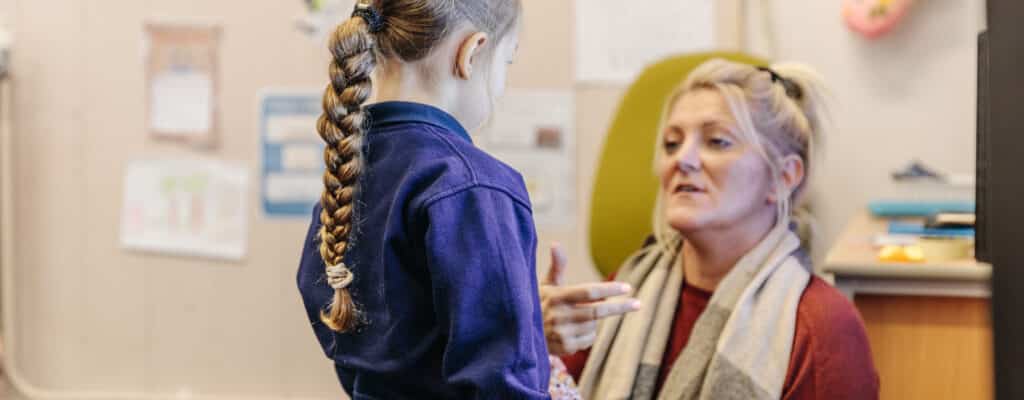Pupil Premium
The Government believes that the Pupil Premium Grant, which is additional to main school funding, is the best way to address the current underlying inequalities between children eligible for free school meals (FSM) and their peers by ensuring that funding to tackle disadvantage reaches the pupils who need it most.
What is Pupil Premium?
The Government considers the Pupil Premium to be a key element of their education policy. Introduced in April 2011, the Pupil Premium provides additional funding to schools to target specific groups of children who are vulnerable to underachievement. These include pupils from low income families, children in care and the children of armed service personnel.
£1,345 is allocated each year to schools for any pupil who has been registered for Free School Meals in the last six years along with looked-after children who have been in continuous care for more than six months. In addition, a Service Child Premium of £310 per pupil has been allocated to children with parents in the armed services in recognition for the particular challenges that they face and a further £145 was been allocated to each Pupil Premium child as part of the governments Covid Recovery in 2021-22.
In 2022-2023, Dundry School will receive £18,005 to support Pupil Premium pupils.
Statement of Intent
A beacon of hope on the hill – a small school making a big difference is our ambition for all pupils at Dundry School. We recognise that some children require additional support from us in order for this ambition to be realised.
Our intention is that all pupils, irrespective of their background or the challenges they face, make good progress and achieve high attainment across all subject areas. The focus of our pupil premium strategy is to support disadvantaged pupils to achieve that goal, including progress for those who are already high attainers.
We will consider the challenges faced by vulnerable pupils, such as those who have a social worker, are young carers or receive support from our Education Welfare Officer. The activity we have outlined in this statement is also intended to support their needs, regardless of whether they are disadvantaged or not.
High-quality teaching is at the heart of our approach, with a focus on areas in which disadvantaged pupils require the most support. This is proven to have the greatest impact on closing the disadvantage attainment gap and at the same time will benefit the non-disadvantaged pupils in our school. Implicit in the intended outcomes detailed below, is the intention that non-disadvantaged pupils’ attainment will be sustained and improved alongside progress for their disadvantaged peers.
Our strategy is also integral to wider school plans for education recovery, notably in its targeted support through School-led Tutoring for pupils whose education has been worst affected, including non-disadvantaged pupils.
Our approach will be responsive to common challenges and individual needs, rooted in robust diagnostic assessment, not assumptions about the impact of disadvantage. The approaches we have adopted complement each other to help pupils excel. To ensure they are effective we will:
- ensure disadvantaged pupils are challenged in the work that they’re set
- act early to intervene at the point need is identified
- ensure all additional support is regularly reviewed for impact
- adopt a whole school approach in which all staff take responsibility for disadvantaged pupils’ outcomes and raise expectations of what they can achieve
Challenges our Disadvantaged Pupils face
- Assessments, observations, and discussions with pupils indicate underdeveloped oral language skills and vocabulary gaps among many disadvantaged pupils. These are evident from Reception through to KS2 and in general, are more prevalent among our disadvantaged pupils than their peers.
- Assessments, observations, and discussions with pupils suggest disadvantaged pupils generally have greater difficulties with phonics than their peers. This negatively impacts their development as readers from Reception through to Year 6.
- Internal assessments indicate that writing attainment among disadvantaged pupils is significantly below that of non-disadvantaged pupils and that these pupils are making slower progress then their peers.
- Internal assessments indicate that maths attainment among disadvantaged pupils is significantly below that of non-disadvantaged pupils, although they are making good progress which is often better than their peers.
- Our assessments and observations indicate that the education and wellbeing of many of our disadvantaged pupils have been impacted by partial school closures to a greater extent than for other pupils. These findings are supported by national studies. This has resulted in significant knowledge gaps leading to pupils falling further behind age-related expectations in all subjects.
- Our observations and discussions with pupils and families have identified social and emotional issues for many pupils, notably due to complex family circumstances and school closure. These challenges particularly affect disadvantaged pupils, including their attainment.
- Our attendance data indicates that attendance among disadvantaged pupils has been between 1-2% lower than for non-disadvantaged pupils. In 2020-2021 attendance for PP pupils was 96.3% compared to the whole school average of 97.2%. Our assessments and observations indicate that absenteeism is negatively impacting disadvantaged pupils’ progress.
How we will support children to overcome these challenges
We will use a combination of approaches that range from whole class strategies to bespoke 1;1 interventions. The Strategy Statement below details these approaches and the budgeted cost along with our intended outcomes and review of previous year’s spending.
Pupil Premium Strategy Statement Dundry 2023-24
Pupil Premium Strategy Statement Dundry 2022-23
Pupil Premium Strategy Statement Dundry 2021-22
Impact of previous year’s spending
PP Report Dundry 2020-2021.docx
COVID-19 Catch-up Premium Funding
Contact Us




